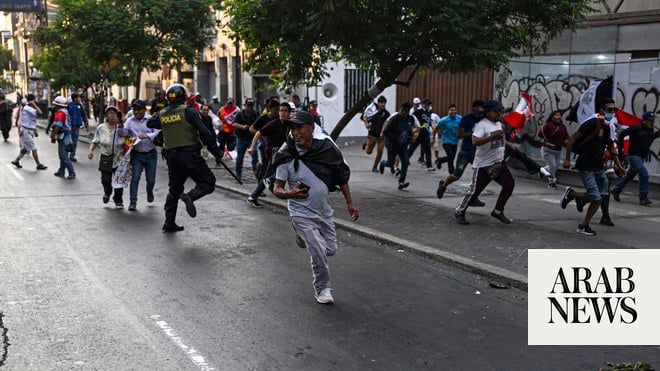
fter protests in Bristol turned sour last week, one account came out on top as numerous media outlets splashed on reports from Avon and Somerset police that injuries to officers included broken bones and a collapsed lung.
To the average reader, such headlines helped build an incriminating and unsympathetic portrait of protesters as anarchic thugs. Given this was a protest over the policing bill – a piece of legislation granting the authorities sweeping powers to ban any protest – the story of a beleaguered force struggling to hold back the mob was politically convenient. Controlling the narrative is a precondition to winning any political battle.
Later in the week, the force reported that no serious injuries took place. This correction failed to receive comparable coverage with the original story. Curiously, an on-duty NHS worker told the Observer that no officers received hospital treatment, while “the hospital designated for protesters was inundated with injured people”.
Yet with most media outlets uncritically repeating the police’s original claims, the narrative was of a rabble of protesters versus a police force under siege. The forces of the state were portrayed as requiring ever more sweeping powers, while dissidents need further containment. It is easy to see how these narratives can lead to, as one former police chief warned, “paramilitary policing”.
What is so jarring about media deference to the police is not just that the fourth estate styles itself as courageously speaking truth to power while all too frequently finding itself complicit in the stripping away of hard-won rights, but that this gullibility appears immune to lessons from history. Media outlets have repeatedly amplified false police claims about demonised ‘“others’” – striking workers, working-class football fans, protesters and Black people.
In some cases, there have been concerns that media organisations have actively collaborated in facilitating outright police dishonesty. After the “battle of Orgreave” – a confrontation at the height of the 1984-85 miners’ strike – miners and the Independent Police Complaints Commission reported that the BBC ran the coverage in the wrong order to make it look as though the miners had initiated a violent confrontation, when it was actually the other way round. The BBC has never officially accepted this account. Most of the media did little to reveal the active cover-up of police brutality at Orgreave and the miners’ battle for justice remains.
When police unleashed brutality against green activists, anti-nuclear protesters and festival-goers on their way to Stonehenge in 1985 – pregnant women were among those clubbed by officers – most media outlets refrained from reporting on what had happened. The widespread demonisation of the festival-goers paved the way for the repressive 1986 Public Order Act.
Worse was to come. In 1989, the Sun reported police lies about Liverpool fans at the Hillsborough stadium disaster, stalling the bereaved families’ struggle for justice. The legacy of this still lives on today, and the newspaper is widely boycotted in Merseyside.
When the police swept away climate camp protesters at the Kingsnorth power station in 2008, they justified their expensive and belligerent operation with widely reported claims of injuries. Thanks to freedom of information requests submitted by the Liberal Democrats, it turned out those “injuries” were actually insect bites, diarrhoea and toothache.
In 2009, when homeless newspaper vendor Ian Tomlinson died on his way home while walking through protests during the G20 summit, the London Evening Standard splashed on police claims, and the headline ran: “Police pelted with bricks as they help dying man.” It was only thanks to a private citizen’s video of events that this narrative was upended.
Tomlinson had been struck from behind without provocation by a police officer, hurling him to the ground in what an inquest later found was unlawful killing. More recently, Sussex police had to apologise after falsely claiming that large numbers of Crystal Palace fans attempted to enter a football match armed with “knives and knuckledusters”.
All too often, much of the media have either failed to robustly scrutinise police claims, passed them off as concrete facts, or actively collaborated in disseminating false narratives. The dangers are self-explanatory: it risks manufacturing consent for the stripping away of rights and freedoms on the basis of false claims.
Several diligent journalists reported that the protests in Bristol were peaceful until aggressive policing began: that in itself should start a conversation about the role of the police in a state where citizens have the right to collectively come together to make their voices heard. But an authoritarian mentality within the police – as appears to be exemplified by one senior officer using Twitter to declare “peaceful protest is a qualified not absolute right” and that “technically we’re crown servants not public servants” – is not being robustly challenged.
The consensus between media outlets, the police and a government determined to repeal rights won by our ancestors – including those struck by police batons – threatens our democracy, and should be called out as such.
Owen Jones is a Guardian columnist











